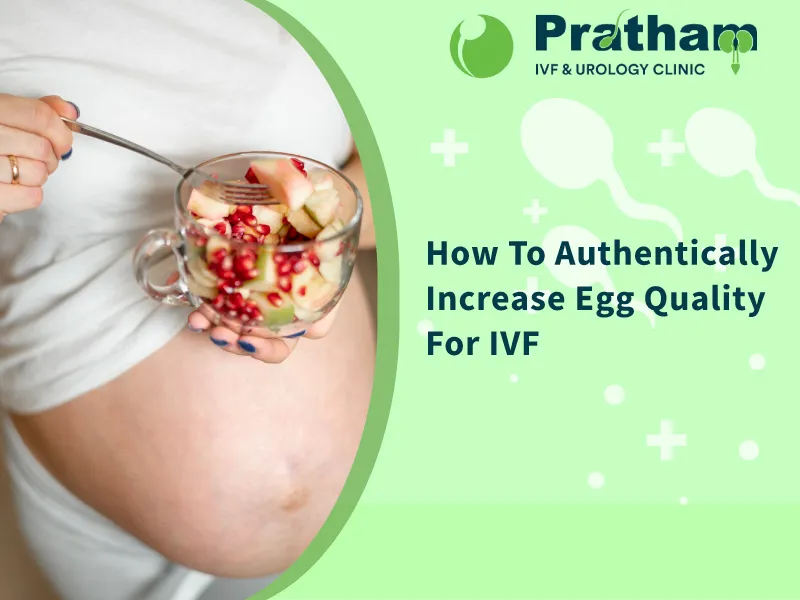
How To Improve Egg Quality For IVF
Improving egg quality for IVF needs a comprehensive approach that includes healthy lifestyle choices, proper nutrition, and medical care. Pratham IVF Center focuses on proven methods for increasing fertility. A balanced diet rich in antioxidants, folic acid, and omega-3 fatty acids can support cellular health and reduce oxidative stress, which impacts egg quality. Maintaining a healthy weight, managing stress through yoga or meditation, and providing proper sleep also contribute to better reproductive outcomes. Avoiding smoking, alcohol, and excessive caffeine can prevent damage to egg cells. Supplements like CoQ10 and DHEA may be recommended under expert supervision to boost mitochondrial function in eggs. Regular exercise improves blood circulation to the ovaries, enhancing their function. Consulting an IVF specialist ensures that any underlying hormonal or medical conditions affecting egg quality are addressed. By adopting these authentic and science-backed strategies, women can improve their chances of successful conception through IVF.
Here are some tips to improve egg quality for conception and healthy pregnancy:
Diet and Nutrition:
- Antioxidant-Rich Foods: Incorporate fruits, vegetables, nuts, and whole grains rich in antioxidants like vitamins C and E. These may help combat oxidative stress, potentially benefiting egg quality.
- Healthy Fats: Omega-3 fatty acids found in fish, flaxseeds, and walnuts can support cellular health and may positively influence egg quality.
- Protein Intake: Make sure adequate intake of lean proteins from sources like poultry, fish, tofu, and beans to provide essential building blocks for egg development.
Lifestyle Changes:
- Regular Exercise: Engage in moderate physical activity, as it can improve blood circulation and overall health, potentially benefiting egg quality.
- Reduce Stress: Practice stress-relieving techniques such as yoga, meditation, or mindfulness. Chronic stress can impact hormonal balance, potentially affecting egg quality.
- Adequate Sleep: Aim for quality sleep to support overall reproductive health and hormone regulation.
Supplements:
- Folic Acid and Vitamin D: These supplements may support reproductive health and egg quality. Consult with a healthcare provider to determine appropriate dosages.
- Coenzyme Q10: Some studies suggest it may help improve egg quality by reducing oxidative stress. Discuss its usage with your doctor.
Avoid Harmful Substances:
- Smoking and Alcohol: Both can negatively impact egg quality. Quit smoking and limit alcohol consumption.
- Caffeine: Consider reducing caffeine intake, as high levels might affect fertility.
Medical Interventions:
- Hormonal Stimulation: In IVF, the stimulation protocol prescribed by your fertility specialist can impact egg quality. Customized protocols tailored to individual needs may optimize outcomes.
- Preconception Counseling: Consult with a reproductive endocrinologist or fertility specialist for personalized guidance and potential interventions to improver egg quality.
Time and Patience:
- Age Consideration: Egg quality tends to decline with age. Early consideration of fertility treatments like IVF might yield better outcomes.
 Ahmedabad Top Rated IVF Center
Ahmedabad Top Rated IVF Center




